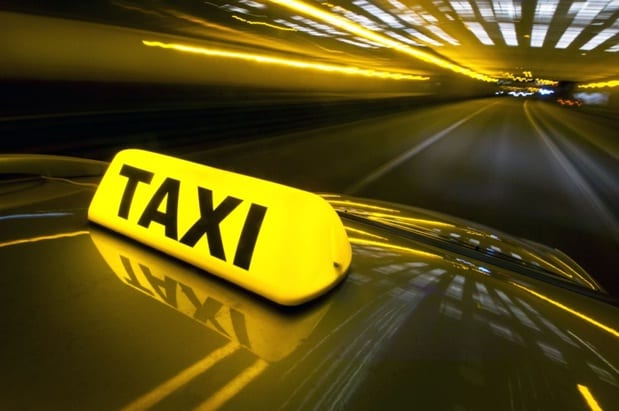Cabbies drive for a living, so they should be good at following the rules of the road, right? If you asked that question to anyone who has taken a cab in New York, Chicago, Las Vegas, or any other major city, you’d likely get laughed out of the room.
Now, that’s not to say that all taxi cab drivers are reckless—that would be far too broad a generalization. There are plenty of good cab drivers out there, but there are also quite a few bad ones who cause some harrowing and serious accidents. In one month in New York City (one of the worst cities in the country for traffic congestion),there were 1,241 traffic accidents that involved a cab. The city of Chicago receives roughly 7,000 complaints about reckless taxi drivers each year.
You would think that these kinds of things would force lots of people into finding a new line of work, but that’s rarely the case. Cab drivers almost never have their license permanently taken away after an accident or a complaint. Out of those 7,000 complaints in Chicago in 2010, 18 cabbies had their licenses temporarily taken away, and only 7 permanently lost them.
A Slap on the Wrist for Reckless Endangerment
Cab drivers are responsible not only for the safety of their fares, but also the other vehicles they share the road with. So it’s alarming to think that so many of them demonstrate little concern for basic driving safety and still manage to get away with it. Some common problems with taxi drivers that passengers have complained about include speeding, weaving in and out of lanes, cutting other cars off, and accelerating or braking suddenly.
Most people who have been in a cab with a reckless driver might leave the car shaken and regale their friends with stories about their crazy ride, but few will call further attention to the incident. Los Angeles Times reporter Peter Greenberg is one exception. After a particularly harrowing ride on the way to LaGuardia in New York, he felt compelled to share his story with the public. Greenberg, a New York native who had experience driving in the city, felt that his driver was going too fast in the rain and warned him to slow down. The driver not only ignored him, but actually sped up. This led to the car spinning out, colliding with both the highway wall and a steel girder, and coming to a stop parallel to oncoming traffic. Amazingly, Greenberg and the cabbie were mostly unharmed (although Greenberg’s laptop was totaled), but the story illustrates some of the seriously negative consequences of careless taxi driving.
In another recent case of reckless endangerment, a New York taxi cab driver was somehow cleared of all criminal charges after jumping his car onto a crowded sidewalk and hitting a young British tourist who later lost her leg because of the accident. The court declared that there was a lack of evidence that the cabbie intentionally jumped his car onto the curb, even though witnesses say that he exhibited road rage after a cyclist cut him off and was attempting to run his cab into the bike. Having been cleared of all criminal charges, the cab driver’s only punishment has been a 30 day suspension of his license. Sian Green, the young woman who lost her lower leg and suffered brain trauma after the cab pinned her, has remained positive after the incident, but her family is upset by the outcome of the trial and intends to sue the cab driver.
Cab Passengers Have Rights
It’s scary to think that so many reckless cab drivers are able to continue driving and putting their passengers in harm’s way. Sure, most cab accidents and incidences of reckless driving are not as serious as in the cases of Sian Green and Peter Greenberg, but if the vast majority of cabbies keep driving after a series of “close calls,” how long will it be before they do get into a more serious crash?
While it’s true that there are taxi courts specifically set up to handle complaints from cab passengers, these overcrowded venues frequently bargain down reckless driving cases to a charge of “discourteous conduct,” meaning that drivers will only pay a small fine or fee. Many cab drivers will pass through a taxi court multiple times and pay multiple fees, yet this does not seem to raise any major red flags. Shouldn’t past incidences of recklessness and negligence be taken into account?
As demonstrated in the case of Sian Green, it may sometimes be necessary for victims of taxi cab accidents to take their case tocivil court. Negligent and reckless cab drivers need to learn that their behavior has negative consequencesand that their passengers and injured pedestrians won’t tolerate it any longer.
About the Author: Andrew Winston is a partner at The Law Offices of Andrew Winston. He has been recognized for excellence in the representation of injured clients by admission to the Million Dollar Advocates Forum, is AV Rated by the Martindale-Hubbell Law Directory, and was recently voted by his peers as a Florida “SuperLawyer”—an honor reserved for the top 5% of lawyers in the state—and to Florida Trend’s “Legal Elite.”










